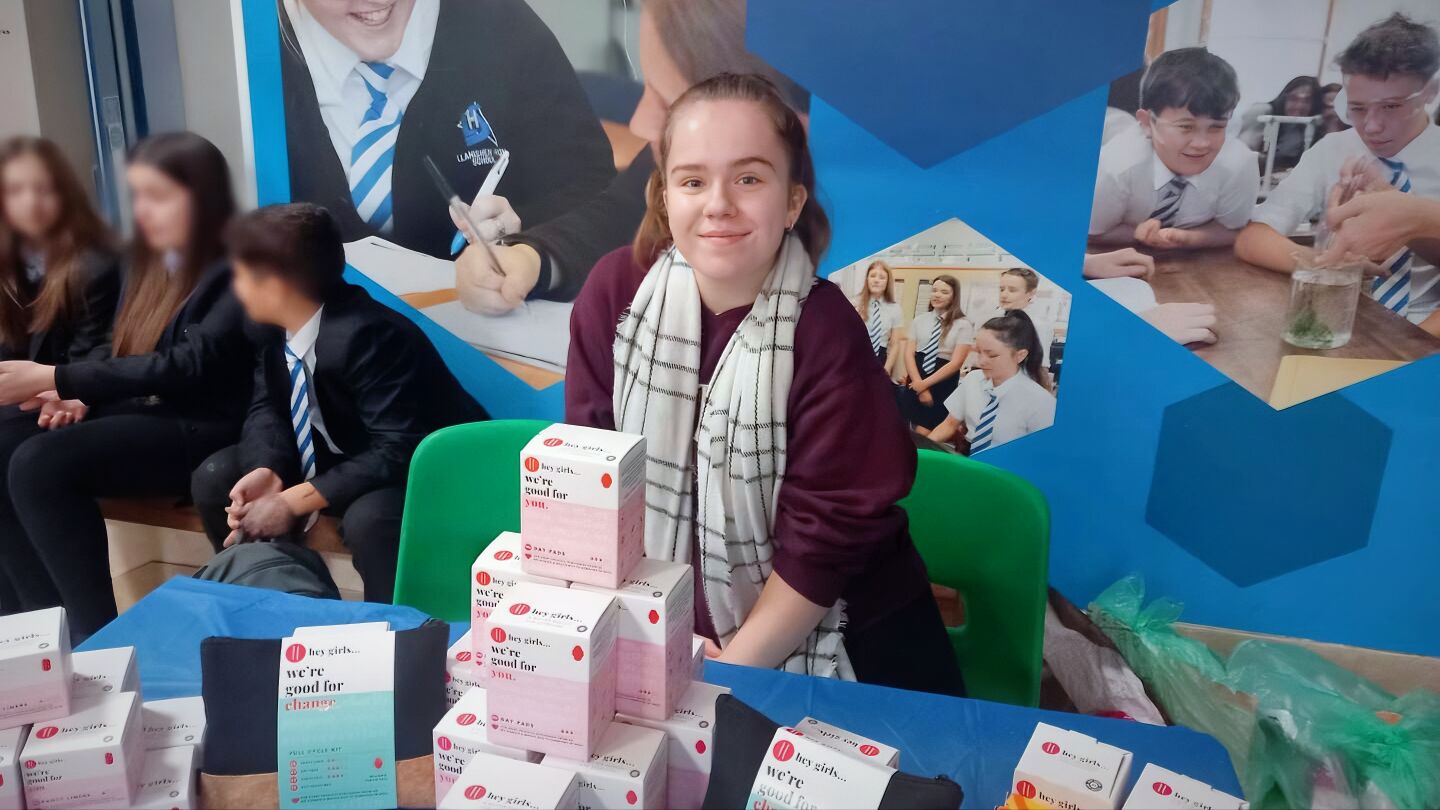Despite government schemes providing free period products, schoolgirls still lack access because the products are locked in cupboards in the toilets, according to the founder of the Love Your Period Campaign.

More than half of girls in the UK said period products were not being made freely available to them in school washrooms, according to a recent report.
Almost one in 12 girls said they stayed away from lessons because no period products were available to them, a figure 3% higher than in 2019, the report by washroom provider phs Group has revealed.
“Schools refuse to put period products in the actual toilets but lock them in cupboards, and you have to ask for them. So, lots of girls are embarrassed and don’t want to ask,” said Molly Fenton, the founder of Love Your Period Campaign.
“Even though we now have a period dignity scheme, which means period products are available. Basically, pupils are still struggling to get them whilst they’re in schools,” she added.

Period poverty is an important issue among schoolgirls. Maddi Wright, a PhD student at Cardiff University researching menstrual poverty and stigma among young people in South Wales, said, “A lot of girls I talked with couldn’t afford products. They would use their socks and newspapers as pads. It was really upsetting.”
The Welsh government plans to achieve period dignity by 2027, improving access to products and reducing stigma. It commits to ensuring free period products are available at all schools in Wales.
However, according to Molly, there is a big communication problem. “The government provides free period products. But due to the lack of communication between schools and pupils, getting products into the pupils’ hands becomes a problem,” she said. “They’re not advertised, and no one will advertise them. Girls don’t even know that these products are available.”
When student Alyssa Gully found herself caught without period products at school, she had to go to the reception to ask the school caretaker to open a locked cupboard to access sanitary towels.
Tilly Fenton got her period during her GCSE exam but couldn’t find any tampons and pads in the toilet. This made her uncomfortable, and she struggled to concentrate on her exam for the next two hours as she leaked onto her chair.

The report of a group of UK charities found that 44% of girls feel too embarrassed to ask for period products at school.
The lack of access and the extra barrier to getting products impact girls’ attendance and education. Alyssa said she knows some girls who would rather say they are sick and go home, rather than ask the school for products, because they know it will be a difficult and embarrassing process.
Schoolgirls are struggling with verbal abuse and shame around their periods. “A lot of girls were really like not embarrassed but shamed to talk about it, because they felt that they would get teased or bullied. It was mainly being teased by boys, being called moody, dirty and smelly,” said Maddi.

Educating boys is essential in changing their attitudes towards girls and menstruation, according to Maddi. “I hope the government can make more inclusive lessons to teach boys and to teach about the social side of periods, not just the biological side, and how it affects girls socially, emotionally, not just physically,” she said.
In addition to advertising the availability of period products, ending period embarrassment is also vital. “Girls should be told where period products are in schools,” said Molly. “And the big thing now is starting conversations. The government can throw as much money as it wants on giving products. But if people are embarrassed, there’s absolutely no point in it.”
